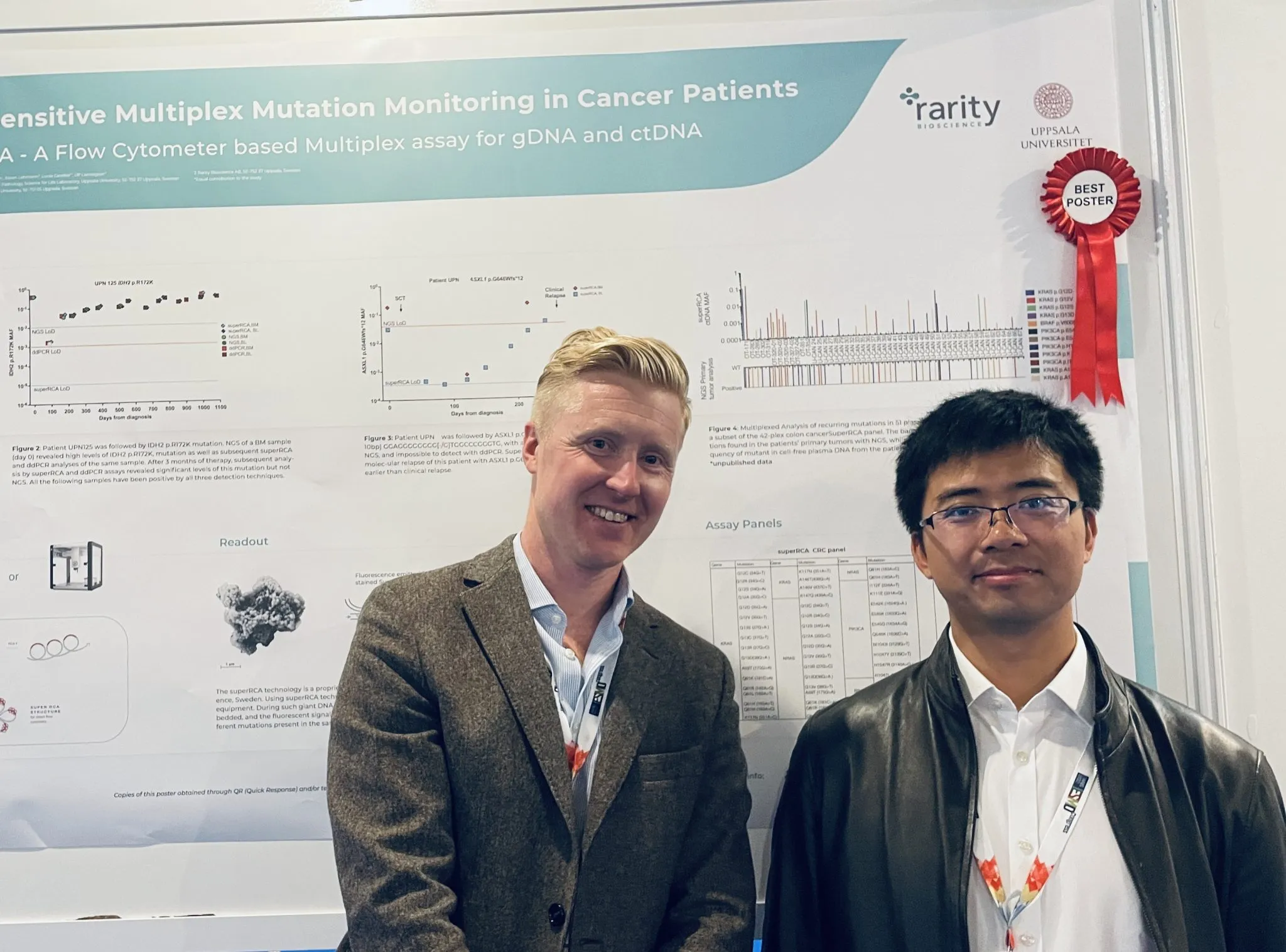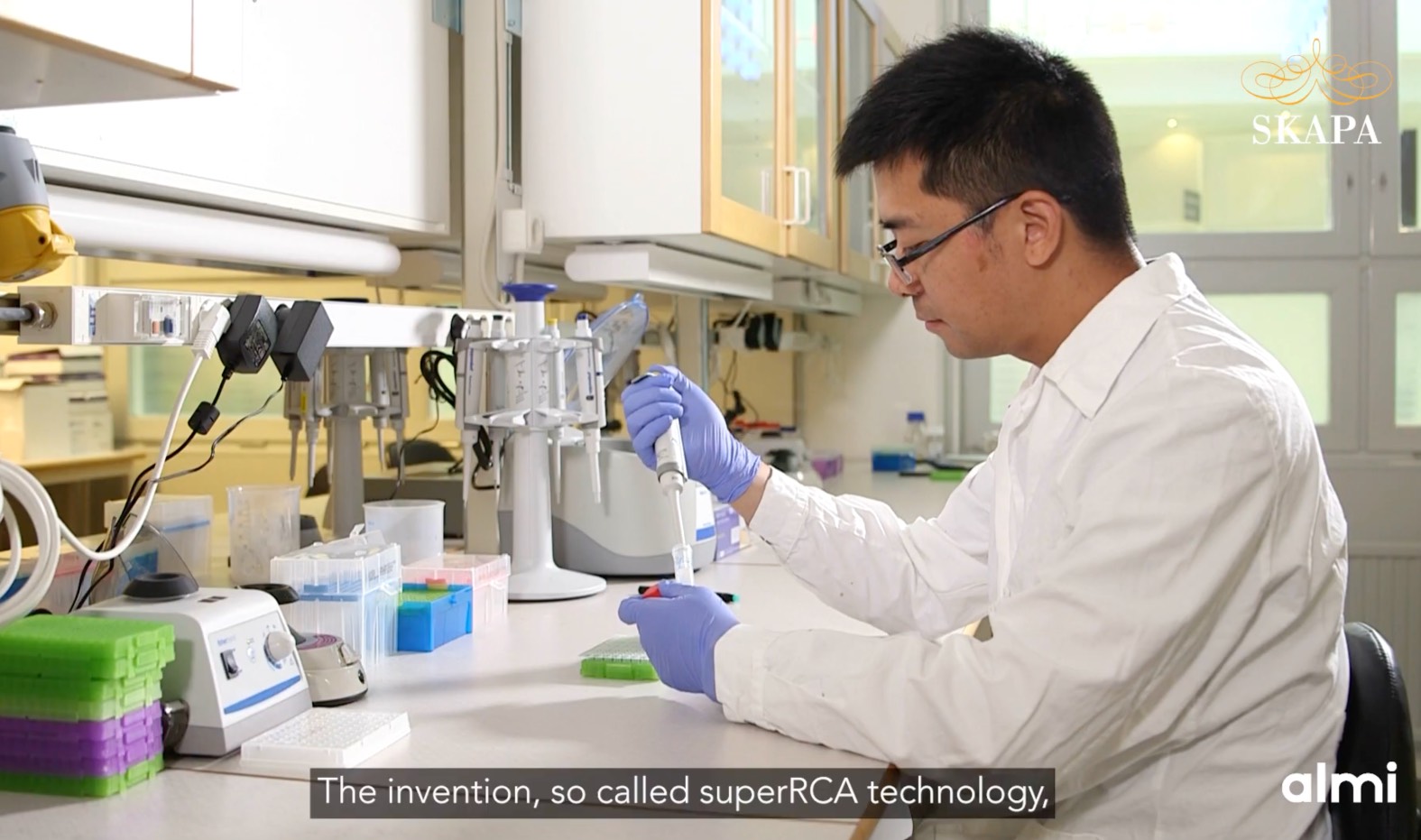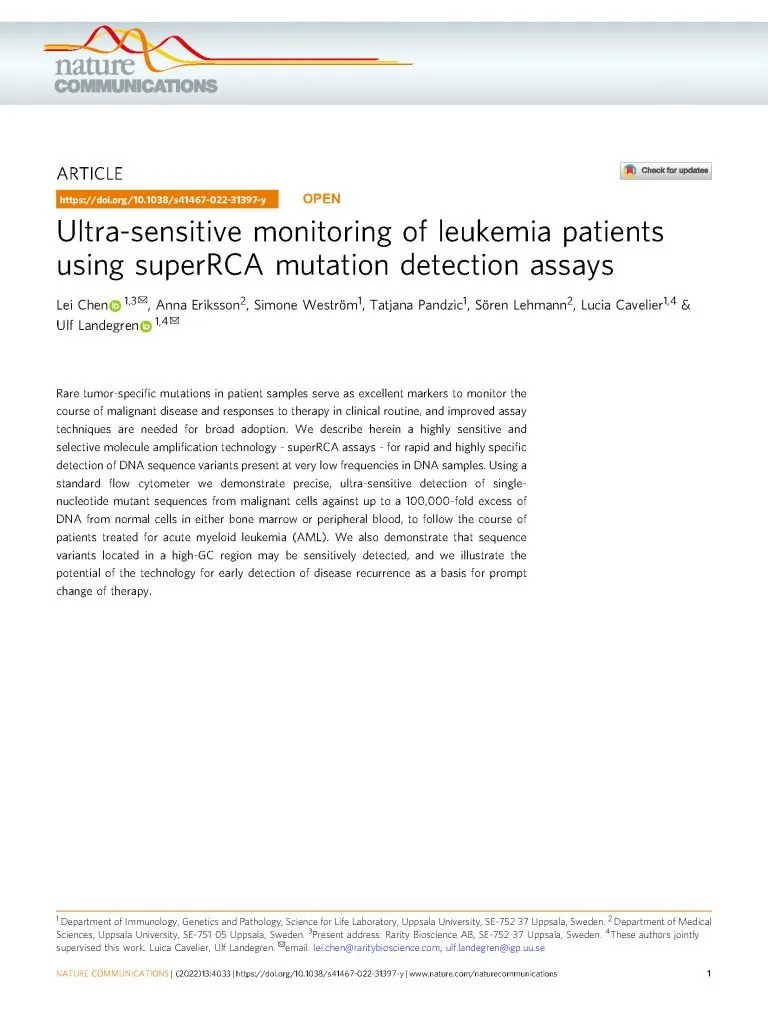
Best Poster Award 2022 at European Society for Medical Oncology
CEO Linus Bosaeus and co-founder and CTO Dr. Lei Chen attended the European Society for Medical Oncology Congress 2022, to
1 mutation in 100 000 wild-types because sensitivity matters
Rarity superRCA is an ultrasensitive multiplex assay for detecting rare nucleic acid sequences in biological samples like liquid biopsies. The format and flexibility of the technology platform – and read-out based on flow cytometry – makes it suitable for research as well as clinical application.
Rarity offers ultrasensitive superRCA® assays for research, available for service testing. The superRCA® assays are designed for extreme sensitivity to enable the full potential of liquid biopsy.
superRCA is an ultra-sensitive and highly specific molecular amplification technology. It is used to detect very small amounts of DNA sequence variants, like cancer mutations, in patient tissue or Liquid Biopsies.
It offers effective detection of multiple targets simultaneously – so called multiplexing. The assay can be performed in most hematology laboratories with existing equipment, using well-established flow cytometry for read-out, enabling more accessible testing with shorter response times.
Rarity Biosciences was founded in 2021 as a spin out from Uppsala University to further develop and commercialize the superRCA assay technology. The superRCA technology was first discovered and developed by PhD Lei Chen and Professor Ulf Landegren in the Molecular Tools group at the Department of Immunology, Genetics, and Pathology.
Want to know more about our history of research and our different methods?

CEO Linus Bosaeus and co-founder and CTO Dr. Lei Chen attended the European Society for Medical Oncology Congress 2022, to

We are delighted to share that Dr. Lei Chen has been awarded the prestigious Skapa innovation award, as winner of

With an innovative, super sensitive technology, so-called superRCA, remaining cancer cells can be detected after treatment of acute myeloid leukemia
Ultrasensitive and reliable
10-100 times more sensitive than current technologies, detecting down 1 mutation in 100,000
Multiplex but simple
Analyse on up to 100 targets from the same DNA sample, with uncompromised sensitivity using the superRCA multiplex
Fast & cost-efficient
Read-out using flow cytometry enables patient-near testing on existing equipment for fast and cost-efficient testing
Sitemap
Contact us
This website uses cookies so that we can provide you with the best user experience possible. Cookie information is stored in your browser and performs functions such as recognising you when you return to our website and helping our team to understand which sections of the website you find most interesting and useful.
Strictly Necessary Cookie should be enabled at all times so that we can save your preferences for cookie settings.
If you disable this cookie, we will not be able to save your preferences. This means that every time you visit this website you will need to enable or disable cookies again.